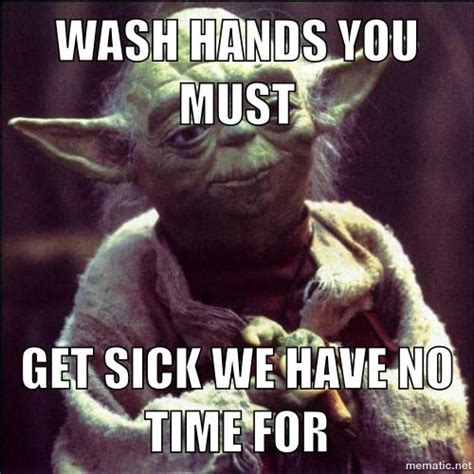Okay, okay, I get it! Everything that you listen to, watch, or read is talking about Coronavirus and by now you understandably have coronavirus-fatigue. The reason I wrote this blog was to tell you what we are doing in my household to fight Coronavirus. We are learning more and more about the virus every day, but there is a lot more to be learned, so take what I’m telling you with a grain of salt. I’m not guaranteeing that what we are doing will work, I’m just giving you a bit of insight into our planning. So, here we go.
#1). Basic Hygiene:
This one is easy and this is one of the things that we in the medical field do know. The virus is spread by respiratory droplets, so we are talking about those things that come out of your nose and your mouth. Once respiratory droplets come from an infected person, they can enter our body directly through airborne spread or from surface spread. So, here are the hygiene basics that will definitely keep you safer:
- Cover your cough: Keep your respiratory droplets to yourself by covering your cough and while you are at it, make sure that you cough into your sleeve and not your hand (since we are always touching people and things).
- Wash your hands frequently: Good old fashioned soap and water will likely kill this virus. Just be sure to wash for at least 20-seconds.
- Coverup: While masks won’t provide complete protection, if you are around someone with known or suspected infection, wear a mask. Avoid crowds.
- Avoid unnecessary contact with other people: Social distancing isn’t just a hashtag. This virus is highly contagious and the only way to reduce spread is to minimize human contact, its just that simple.
- Nasal irrigation: I’m a huge fan of daily saline nasal irrigation on a daily basis anyway so what better time than during a pandemic spread by respiratory droplets to get into the habit?
- Wipe down surfaces: Depending on the type of surface, the virus can live for days so it’s always a good idea to wipe down surface like computer keyboards and desktops.
- Consider gloves: Let’s be honest, you can’t wipe down everything, all of the time. Anytime you are out in public spaces (grocery store, etc…), consider disposable late gloves.
#2). Boosting the Immune System:
Unlike bacterial illness, antibiotics don’t work for viral illnesses like COVID-19. This means that your best defense is a good immune system. So, what can you do to boost your immune system?
- Echinacea is an herb that has long been known to boost the immune system and help your body fight off a multitude of viral infections, including the common cold. I recommend taking 2,500mg daily for immune support. Right now, I’m increasing that and taking 4,000mg daily.
- Black Elderberry is another herb that has been well-studied and proven to also rev the immune system up and it also has the dual benefit of being an anti-oxidant meaning it reduces inflammation. I take 350mg daily and have increased that to 700mg daily for the time being.
- Astragalus is an herb that has been used for centuries by practitioners of traditional Chinese medicine. Astragalus has been found to improve the quality of and increase the production of the white blood cells that the immune system uses to fight infection. I take 300mg daily.
- Vitamin C is another one of those old stand-bys that really does do wonders. Vitamin C helps your body to produce the white blood cells that are key in preventing and fighting illness. Right now my family and I are taking 2,000mg of Vitamin C daily.
- Look for an herbal immune support formula. I’m not a huge fan of promoting specific brands but the immune support that my family and I are taking is called Wellness Formula. I’m taking a full serving in the morning and a full serving in the evening while everyone else (those staying in the house) are taking a full serving every day.
- Sleep: A minimum of 8 hours per day (more if you can) is crucial to getting your immune system firing on all cylinders. Can’t say I’m getting that, but that doesn’t mean that you can’t.
- Exercise: Exercise is great for the entire body and that also includes your immune system. Get at least 30 minutes daily but be sure to do it in a safe manner.
- Reduce Alcohol: Sorry folks but alcohol reduction is key to getting your immune system up and running at full steam.
#3). Preparing for the Worst:
So, what happens if despite all of your best efforts you or someone that you love contracts Coronavirus? The good news is that the majority of people who contract the virus are mildly symptomatic and recover without major illness. There are certain populations, namely the elderly and those with other medical conditions like diabetes, heart disease, etc., in whom the disease may have a more severe course. It appears that most deaths from coronavirus are caused by severe pneumonia and respiratory failure. Because there is no specific treatment for coronavirus, we have to be prepared to treat the symptoms and potential consequences of the infection. So, this is what my family and I have stocked up on:
- Azithromycin: This is an antibiotic that is used to treat pneumonia, which is one of the most serious consequences of coronavirus infection. If anyone in my house contracts coronavirus, I will start them on a 7-day course taking Azithromycin 500mg once daily
- Albuterol inhaler: Albuterol is a “bronchodilator” medication that most asthmatics take. This is a medication that helps to relax and open the airways during an asthma attack or other respiratory illnesses.
- Tamiflu: People will probably yell at me for this one, but there has been some evidence that Tamiflu might be shortening the duration of illness for people with coronavirus infection. While Tamiflu is designed for the flu virus, the thought is that there may be some cross-reactivity leading to a reduction in the coronavirus activity.
- Tylenol: This will be important in reducing the fevers, aches, and pains associated with coronavirus infection. Just to be clear, fevers serve a purpose, that is how your body fights infection, so I only recommend taking a fever reducer if your fever goes higher than 102 degrees Fahrenheit.
- Electrolyte replacement: There is nothing like fevers, vomiting, and diarrhea to dehydrate you and throw your electrolytes out of whack. Be sure to have some electrolyte replacement packets on hand just in case.

 March 16, 2020
March 16, 2020





 May 19, 2018
May 19, 2018 



